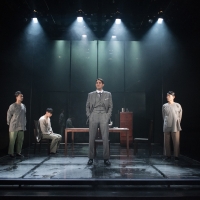The Far Country 2022
Opened: December 5, 2022Closing: January 01, 2023
The Far Country - 2022 Off-Broadway History , Info & More
Linda Gross Theater
336 West 20th Street New York, NY 10011
An intimate epic that follows an unlikely family’s journey from rural Taishan to the wild west of California in the wake of the Chinese Exclusion Act.
FEATURED REVIEWS FOR The Far Country
Review: ‘The Far Country’ Brings a Neglected History Closer
0 / 10
“The Far Country” ends in 1930. That ending isn’t necessarily abrupt. But it does feel somewhat arbitrary. Why not 1950? Or 1970? There is so much more history to recover. More love. More promise. More pain. Moon Gyet claims that the strenuous physical labor required of an immigrant is nothing compared with the work of being Chinese in America. This takes patience and focus, he says. A serious mind and a necessary grace. Suh possesses these qualities in full. He has more work to do, more stories to tell.
‘The Far Country’ Off Broadway Review: Lloyd Suh’s Play Explores the Horrors of the Other Ellis Island
0 / 10
Eric Ting’s direction is effective when the play is on track. When “The Far Country” goes awry, he leaves his audience lost in the San Francisco fog.
Category
The Far Country History
Other Productions of The Far Country
| 2022 | Off-Broadway |
Atlantic Theater Company Off-Broadway Production Off-Broadway |
The Far Country - 2022 Off-Broadway Awards and Nominations
| Year | Ceremony | Category | Nominee |
|---|---|---|---|
| 2023 | Drama Desk Awards | Outstanding Lighting Design of a Play | Jiyoun Chang |
| 2023 | The Lortels | Outstanding Lighting Design | Jiyoun Chang |
| 2023 | The Lortels | Outstanding Scenic Design | Clint Ramos |
| 2023 | The Pulitzer Prize | Pulitzer Prize for Drama | Lloyd Suh |
Videos




